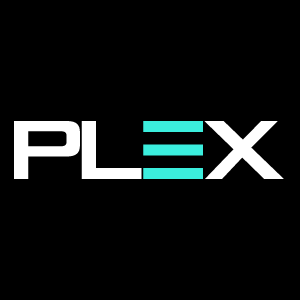Forecasting in a complex supply chain has always been challenging. And for many years, demand and supply planners worked to create strategies for optimizing those supply chains to capture the highest value for what was becoming a more operationally stabilized planning and forecasting system. But the volatility of the disruptions and events of recent years has upended not only the supply chains themselves but the core principles they were built on.
Now, questions are being asked about developing new strategies and tools to manage the "new normal." And supply chain management (SCM) professionals are shifting focus to uncover issues, asking what lessons can be learned to prevent or better manage volatility, and how to build a more agile and resilient supply chain model that turns much of that volatility into value.
Changing Times
Several lessons related to events in the last few years need to be considered in working toward new forecasting models.
First is that the hyper-optimized system of the past no longer works in today's world. Relying heavily on cost-reduction and operational stability, past forecasting models and demand and supply planning relied on just-in-time (JIT) and lean strategies. Having been successfully applied to production and distribution, these models were successful in supply planning as well… until they weren't. Now, the assumption is that major disruptive events have, and will, continue to create a new reality where those techniques are ineffective and can also worsen the problem.
Secondly, consumer patterns have shifted significantly during this period of volatility. People have switched products more often to other companies or products within the same company as shortages occurred or consumers' impressions of their immediate needs were reevaluated. Research by McKinsey shows that recent consumer trends indicate that as many as 30-40% have tried new brands.
Finally, changes are occurring in purchasing channels. This includes more home delivery, direct sales to customers from manufacturers, and other trends. This phenomenon shifts demand in an absolute sense. But it shifts demand and capacity considerations in unintended ways as well.
During the recent COVID-19 pandemic, many food and beverage companies found that they had the supply of many high-demand items but lacked the packaging formats to move away from restaurants and commercial buyers to consumers. Because their capacity was dedicated to large volume increments, their response to demand was not quick enough to make changes. As a result, high-demand food that was available went wasted, and shortages occurred at the endpoint. And beverages such as beer found themselves short on cans while kegs previously sold to restaurants piled up unfilled.
Volatile to Value-driven Forecasting
Nothing can predict every disruption, but SCM professionals can change their strategies to create agile supply chains that sense and forecast demand to take advantage of the volatility and quickly shift to a mode of production and distribution that delivers value.
- Change Forecast Models – One way to recapture value is to change forecast models. Steady-state assumptions of a highly optimized, lowest-cost supply chain must be abandoned. Instead, one designed to mitigate risk by nearshoring or reshoring may strengthen the response to the next wave of volatility. So too will analytical techniques such as ABC analysis help prioritize and understand tradeoffs on the front end, ensuring that the most profitable products are protected during a crisis.
- Forecast Continuously – Past forecasting models were very time-driven. Weekly, monthly, and quarterly forecasts relied heavily on historical data, and trend analysis could only extract what had already happened. By using data captured in real-time or near real-time, forecasting can now become dynamic. While time periods will remain a framework for consistency, data can be continually added to refine and hone the forecast and identify ahead of time many problems quickly, allowing decision-makers time to craft a response. And that forecasting can be integrated with supply and capacity forecasting with the same data to integrate the supply chain system into one unsiloed source of insight.
- Inventory Optimization – Previous forecasting models assumed an optimized inventory defined by low cost, short lead times, or JIT methodology. However, as planners develop new models, inventory optimization may include buffer strategies and tradeoffs to take advantage of nearshoring to derive value in the face of disruption rather than cost-based value strategies.
Deriving Value through Software and Technology
According to a study by Deloitte, new forecasting strategies must assume a move away from creating and managing linear supply chains that are dynamic and agile. This will allow companies to capture value even during volatile times and respond quickly to challenges as they arise. They further indicate that these new models will be driven by data and advanced technology, and analytics.
Plex DemandCaster offers a suite of software to realize solutions that maintain and drive value through the supply chain. This includes demand and supply planning software, rough-cut capacity planning, distribution planning, and inventory optimization. By leveraging data and advanced analytics, Plex DemandCaster's platforms help companies engage in both strategic and tactical planning as disruptions occur.
With accurate insights and deep analytics, trends can be identified to allow managers to deploy solutions proactively through ABC analysis, what-if scenarios, and complete visibility across the supply chain. And the precision of contextualized, unsiloed data can help continuously forecast across demand, supply, capacity, and inventory to maximize value.
To discover how Plex DemandCaster can help you find a solution and develop new strategies to deploy against the volatility of unplanned events, contact us today.
Related Articles
